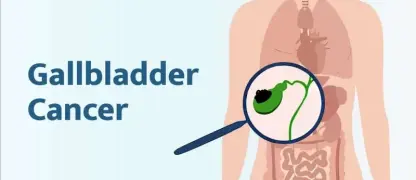Understanding the subtle signs of ovarian cancer is life-saving. Don't overlook persistent symptoms. This essential guide breaks down what you absolutely need to know about its causes, key symptoms, and effective prevention strategies.
What are the main causes of Ovarian Cancer?
- Inherited gene mutations, like BRCA1 and BRCA2, significantly increase the risk, accounting for a notable percentage of all ovarian cancer cases diagnosed.
- Advancing age, particularly after menopause, and never having been pregnant or experiencing infertility can elevate a woman's risk for this specific cancer.
- Long-term use of estrogen-only hormone replacement therapy and lifestyle factors like obesity have also been linked to a higher incidence of ovarian cancer.

Key symptoms of Ovarian Cancer to watch for
- Persistent abdominal bloating and increased abdominal size are among the most common early signs of ovarian cancer that are often mistakenly dismissed by many.
- Experiencing consistent discomfort or pain in the pelvic or abdominal area that does not resolve is a critical symptom requiring immediate medical attention.
- A noticeable change in your urinary habits, such as needing to urinate more frequently or with urgency, can be a subtle but important indicator.
How can you prevent Ovarian Cancer effectively?
- Using combination oral contraceptives (birth control pills) for several years has been shown to significantly reduce the long-term risk of developing ovarian cancer.
- Maintaining a healthy weight through a balanced diet and regular physical activity can help lower your overall risk, including for cancer of the ovaries.
- Women with a strong family history should consider genetic counseling and discuss preventative surgeries, such as oophorectomy, with their healthcare provider for risk reduction.
>>> See more: Key risk factors for bladder cancer - Are you at risk?
Detailed images of ovarian cancer







>>> Don't miss: Thyroid cancer - A guide to diagnosis and treatment options
Early diagnosis dramatically improves the ovarian cancer survival rate. If you experience any of these signs, don't wait. Consult a healthcare professional for a thorough evaluation and peace of mind.
>>> Find out together: Preventing liver cancer - Key risk factors to manage






